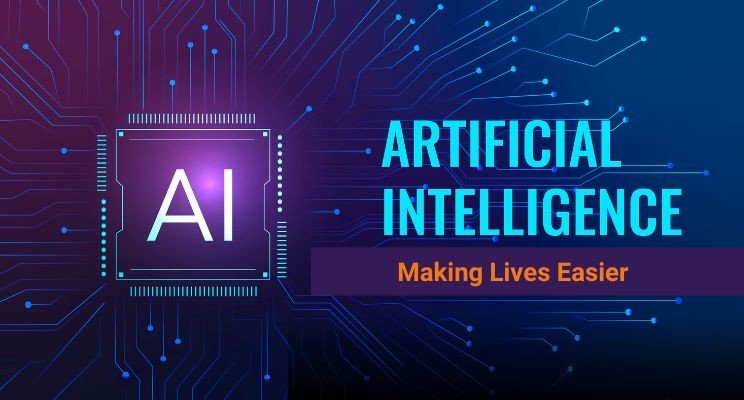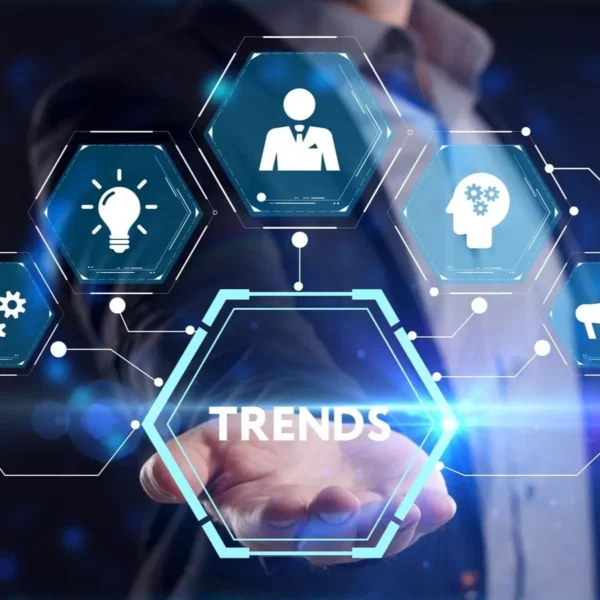Artificial Intelligence (AI) has become one of the most powerful tools in shaping the way we live, work, and interact with the world around us. Once thought of as futuristic, AI is now a daily reality influencing almost every aspect of modern life. From simplifying tasks to creating smarter solutions for personal and professional use, AI is making life easier, more efficient, and more connected. Below are 20 detailed points that explain how AI is transforming our everyday lives and helping us live better.
1. AI in Personal Assistants: Making Everyday Tasks Simpler
Virtual assistants like Siri, Alexa, and Google Assistant have changed the way people manage their routines. These AI-driven assistants can perform tasks such as setting reminders, answering queries, managing calendars, controlling smart home devices, and even offering entertainment. Instead of wasting time searching for answers or typing out commands, people can simply speak to these assistants and get instant help. This voice-activated convenience is a prime example of AI making life easier, as it removes unnecessary effort from everyday actions. It also improves multitasking, allowing people to focus on other important activities while the assistant takes care of smaller tasks. With constant updates, these assistants are becoming even smarter, learning user preferences and adapting to them.
2. AI in Healthcare: Smarter Diagnosis and Treatment
Healthcare is one of the most significant areas where AI is making a massive difference. AI-powered tools are being used to detect diseases earlier, analyze medical images faster, and provide accurate diagnoses. For example, AI algorithms can read X-rays and MRIs in seconds, identifying conditions that might take doctors much longer to analyze. AI also helps in creating personalized treatment plans based on a patient’s history, ensuring better outcomes. Virtual health assistants can answer health-related queries, schedule appointments, and monitor patient progress remotely. This not only reduces the workload of healthcare professionals but also makes healthcare more accessible and efficient for patients.
3. AI in Education: Personalized Learning for Every Student
Education systems are increasingly turning to AI to enhance learning experiences. AI can analyze student performance and provide personalized study plans tailored to individual strengths and weaknesses. For instance, online platforms like Duolingo use AI to adapt lessons according to the learner’s pace. Virtual tutors and AI-driven grading systems help both students and teachers save time. AI chatbots can also answer students’ questions instantly, improving engagement. This level of customization ensures that every student gets a learning path designed for them, making education more effective and accessible to everyone, regardless of location.
4. AI in Smart Homes: Convenience at Your Fingertips
Smart home technology powered by AI has turned houses into efficient, connected living spaces. Devices like smart thermostats, lighting systems, and security cameras learn from user behavior and adjust settings automatically. For example, a smart thermostat can study your daily routine and optimize heating or cooling to save energy while keeping your home comfortable. AI-powered security systems can detect unusual activity and notify homeowners in real-time. Even kitchen appliances are becoming intelligent, suggesting recipes based on ingredients available at home. This integration of AI into households saves time, reduces stress, and enhances comfort.
5. AI in Transportation: Safer and Smarter Travel
AI has revolutionized the transportation industry by introducing smarter navigation, predictive maintenance, and autonomous driving technology. Navigation apps like Google Maps use AI to provide real-time traffic updates, suggest faster routes, and reduce travel time. Public transport systems are also using AI to optimize schedules and routes. Self-driving cars, though still in development, promise to reduce accidents caused by human error and improve road safety. AI also helps airlines manage flight operations, detect potential issues early, and minimize delays. These advancements make travel more convenient, efficient, and safe for everyone.
6. AI in Finance: Smarter Money Management
Managing money has never been easier with AI-powered tools. Banking apps use AI to track spending habits, offer budgeting advice, and prevent fraud. AI-driven chatbots can instantly answer banking-related queries, saving time spent on customer service calls. Investment platforms also use AI algorithms to analyze market trends and recommend the best investment strategies. Fraud detection systems powered by AI can monitor transactions in real time and alert users to suspicious activity, making financial transactions safer. This allows individuals to have more control over their money with minimal effort.
7. AI in Shopping: Personalized Customer Experience
E-commerce platforms like Amazon use AI to analyze shopping behavior and suggest products tailored to individual preferences. This personalization improves the shopping experience and saves time by highlighting relevant items. AI-powered chatbots provide 24/7 customer support, answering questions instantly and assisting with returns or exchanges. Retail stores are also using AI to manage inventory, predict demand, and reduce waste. With AI, shopping becomes faster, smarter, and more enjoyable, whether done online or in-store.
8. AI in Workplaces: Boosting Productivity and Efficiency
In workplaces, AI tools are being used to automate repetitive tasks such as data entry, scheduling, and email responses. This frees up employees to focus on more meaningful and creative work. AI also enhances collaboration by providing real-time translations during global meetings and offering smart scheduling based on everyone’s availability. Project management tools powered by AI can predict potential delays and suggest ways to keep projects on track. By making work more organized and efficient, AI is transforming office environments worldwide.
9. AI in Entertainment: Smarter Content Recommendations
Entertainment platforms like Netflix, YouTube, and Spotify rely heavily on AI to suggest personalized content. By analyzing what users watch, listen to, or interact with, these platforms recommend new shows, videos, or songs that match individual tastes. AI also enhances gaming experiences, creating more realistic environments and smarter opponents. Virtual reality and augmented reality technologies powered by AI provide immersive entertainment that feels almost lifelike. This personalization ensures that users spend less time searching for content and more time enjoying it.
10. AI in Communication: Breaking Language Barriers
Language barriers are no longer a big challenge thanks to AI-powered translation tools. Apps like Google Translate use AI to provide real-time translations, making communication across different languages much easier. Businesses can now interact with international clients without struggling with misunderstandings. AI also powers transcription tools that can instantly convert speech into text, saving time in meetings or lectures. These tools improve global communication and bring people closer by breaking down linguistic limitations.
11. AI in Agriculture: Smarter Farming Solutions
AI is transforming agriculture by helping farmers increase productivity while reducing waste. AI-powered drones monitor crops, analyze soil conditions, and detect plant diseases early. Smart irrigation systems adjust water supply based on weather forecasts and soil moisture, saving resources. AI also predicts crop yields and market demands, helping farmers make better decisions. These advancements ensure that food production is more efficient and sustainable, making AI a valuable tool in ensuring food security for the future.
12. AI in Environmental Protection: Protecting the Planet
AI is playing a critical role in protecting the environment. It helps scientists monitor climate change, track pollution levels, and predict natural disasters. For instance, AI models can analyze satellite images to detect illegal deforestation or monitor endangered species. Smart energy systems use AI to reduce waste and promote the use of renewable energy sources. By providing accurate data and solutions, AI is helping humanity create a more sustainable future and combat environmental challenges effectively.
13. AI in Customer Support: Instant Help Anytime
AI-powered customer service chatbots are now available 24/7 to provide instant support. They can answer frequently asked questions, solve common problems, and even escalate complex issues to human agents when necessary. This not only improves customer satisfaction but also reduces waiting times. AI also allows companies to handle large volumes of customer queries without delays, ensuring a smoother service experience. By simplifying communication, AI makes customer support faster and more efficient.
14. AI in Security: Keeping People and Data Safe
Cybersecurity is one of the most important areas where AI is making a difference. AI-powered systems can detect unusual activity on networks and prevent cyberattacks before they happen. For individuals, AI protects personal information by monitoring suspicious login attempts and blocking unauthorized access. AI is also used in physical security systems, such as facial recognition technology, to improve safety in public places. With these tools, AI ensures that both digital and physical spaces remain secure.
15. AI in Social Media: Smarter Engagement
Social media platforms use AI to improve user engagement by analyzing behavior and suggesting relevant content. AI also filters spam and harmful content, creating a safer online environment. Businesses use AI to understand audience preferences and create more effective marketing campaigns. Tools like automated captioning and photo tagging are also powered by AI, making social media more interactive and user-friendly. These innovations simplify online communication and enhance digital experiences.
16. AI in Travel: Personalized Trip Planning
Travel planning has become easier thanks to AI-powered tools. Apps can suggest destinations, plan itineraries, and even predict flight delays. AI chatbots on travel websites provide instant assistance with booking hotels, flights, or tours. Personalized recommendations based on user preferences make travel planning more enjoyable and stress-free. AI also improves safety by analyzing travel risks and suggesting the best options for travelers. This personalization allows people to enjoy trips tailored to their interests and needs.
17. AI in Fitness and Health Tracking
AI has made personal fitness easier to manage through apps and wearable devices. Smartwatches and fitness trackers monitor heart rates, sleep patterns, and activity levels, providing real-time feedback. AI algorithms analyze this data and give personalized recommendations for workouts, diet, and lifestyle improvements. This motivates individuals to stay active and maintain healthier routines. AI fitness apps also provide virtual coaching, guiding people through exercises and correcting their form.
18. AI in Creativity: Assisting Artists and Writers
AI is no longer limited to technical fields—it is also helping in creative areas. AI tools can generate artwork, assist with music composition, and even suggest improvements in writing. Writers can use AI to edit drafts, generate ideas, and refine content. Musicians use AI to experiment with new sounds, while visual artists explore unique designs with AI-generated tools. Instead of replacing human creativity, AI enhances it by offering inspiration and support.
19. AI in Everyday Problem-Solving
From helping people find recipes based on ingredients they already have to providing real-time traffic updates, AI is solving small but important everyday problems. Virtual assistants can help create shopping lists, fitness apps remind users to stay active, and smart devices help save energy bills. By integrating AI into daily activities, individuals can save time, effort, and resources while living more efficiently.
20. AI for the Future: A Constantly Evolving Helper
The most exciting part about AI is its potential to grow and evolve. As technology advances, AI will become even more integrated into daily life, offering smarter solutions and making tasks even easier. From healthcare to education, transportation to entertainment, AI will continue to play a major role in shaping how society functions. The more AI develops, the more convenience and opportunities it brings to individuals, making life simpler, safer, and more enjoyable.




Sign up